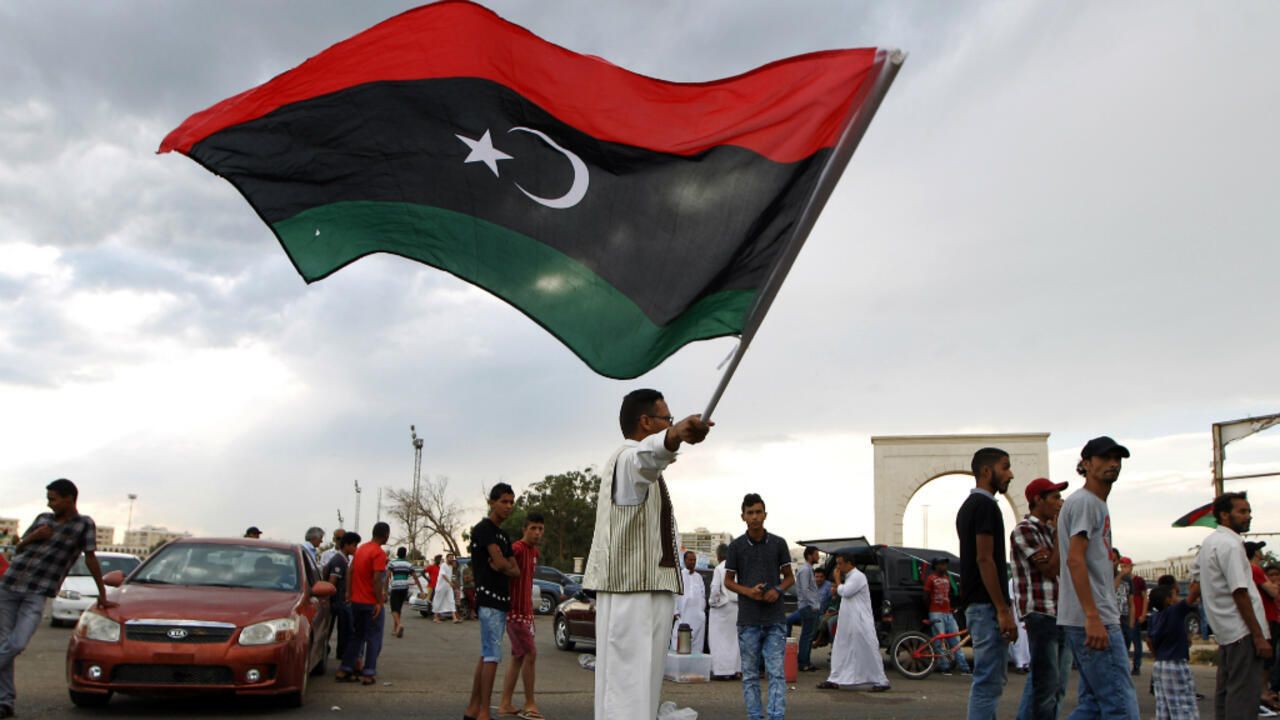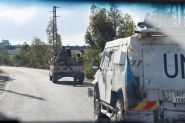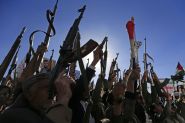- Home
- Middle East
- Libya Government says Pursuing Permanent Truce After Clashes

Libyan government backed by the UN pushes for a ceasefire after deadly clashes in Tripoli. ©Adbullah Doma / AFP
Libya's UN-recognized government said Monday it was pressing efforts to reach a permanent ceasefire after days of deadly clashes in the capital and protests demanding the prime minister's resignation.
The fighting last week pitted an armed group aligned with the Tripoli-based government against factions it has sought to dismantle, resulting in at least eight dead, according to the United Nations.
The Libyan defense ministry said in a statement that "the efforts towards a ceasefire remain ongoing" and that it was "directly" overseeing the process "to ensure stability".
The fighting had largely ended by late Thursday, according to an interior ministry official and the UN mission in Libya, but without any formal ceasefire agreement.
The UN mission, UNSMIL, welcomed on Sunday the creation of a "truce committee building on the fragile peace reached last week" after the violence that saw heavy artillery used in central Tripoli.
UNSMIL said that the committee "is focused on facilitating a permanent ceasefire with emphasis on the protection of all civilians, and to agree on security arrangements for Tripoli".
Libya is split between the UN-recognized government in Tripoli, led by Prime Minister Abdulhamid Dbeibah, and a rival administration in the east.
The North African country has remained deeply divided since the 2011 NATO-backed revolt that toppled and killed longtime leader Moamer Kadhafi.
Tripoli saw a return to relative calm late last week as flights resumed, shops reopened and people returned to work, but the situation remained volatile as calls for Dbeibah's resignation grew.
The clashes were sparked by the killing of an armed faction leader by a group aligned with Dbeibah's government -- the 444 Brigade which later fought a third group, the Radaa force that controls parts of eastern Tripoli and the city's airport.
It came after Dbeibah announced a string of executive orders seeking to dismantle Radaa and dissolve other Tripoli-based armed groups but excluding the 444 Brigade.
The 444 Brigade said Monday it had uncovered a mass grave with 10 bodies in Abu Salim, a district of Tripoli that before last week was controlled by the group of Abdelghani al-Kikli, whose killing sparked the clashes.
Dbeibah had accused Kikli's group, the Support and Stability Apparatus, of multiple abuses including "cold-blooded" executions and force disappearance of critics.
In an address on Saturday after securing the public support of several dignitaries, Dbeibah called on armed groups in Tripoli to align themselves with "state institutions".
"Our goal is a Libya free of militias and corruption," he said.
With AFP
Read more



Comments